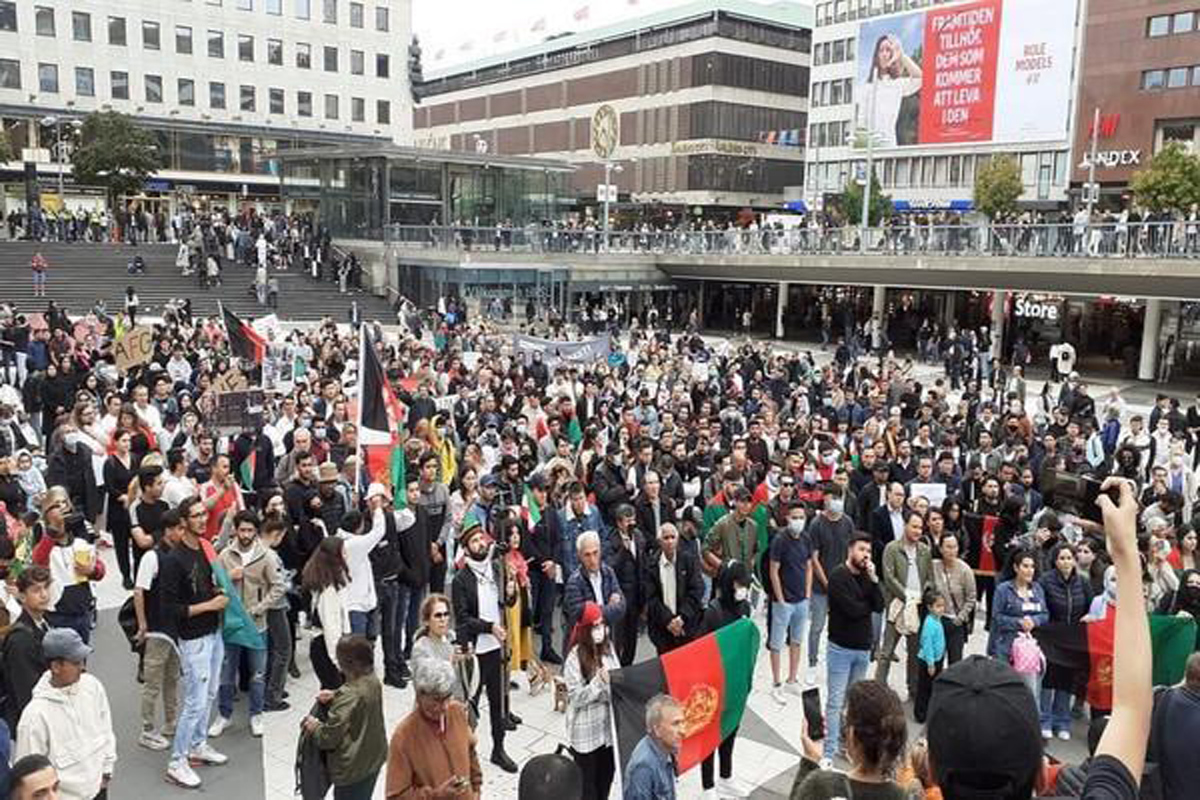After the Taliban takeover of Kabul, Nepal-based social media users have been relentlessly posting on social media in solidarity with the citizens of Afghanistan. Nepali feminists are particularly worried about the misogyny that could now unfold there. When the Taliban controlled Afghanistan from 1996 to 2001, they had imposed the wearing of the burqa, requirement of a male ‘guardian’ in public spheres, prohibition to work, interdiction to pursue higher education, risk of sexual violence, and forced marriages of young girls to the Taliban fighters. Today, the fall of Afghanistan has yet again threatened the very agency, autonomy, and personhood of the country’s women. While social media activists are initiating this conversation, many Nepalis have asked: Why should we care?
The momentum of any protest depends on the people’s ability to relate to the idea of justice. For people to sympathise, the injustice needs to be visible, even at the cost of making one uncomfortable. For instance, to expose the cruelty of factory farming, PETA, an American animal rights organisation, often uploads graphic videos of animal slaughter explaining how our food comes to our plate. Another familiar example of this is the video documenting George Floyd’s death in the USA, circulated globally on social media. While the #BlackLivesMatter movement existed before Floyd’s death, the incident stood out because it was filmed. The circulation of that video made us all virtual bystanders. The footage of Derek Chauvin, a white police officer, kneeling over the throat of an unarmed black man till he died triggered the black community to violently flood the streets, not just in the USA but worldwide.
Even in Nepal, a conversation on discrimination against Madhesis emerged following the global protests. The hypocrisy of the people who callously mocked the accents of the Madhesis but put #BlackLivesMatter in their tweets got called out. Casteism, often paralleled as oriental racism, was brought to attention as a trickle-down effect. #DalitLivesMatter, with petitions, emerged substantially in Nepali social media. Today, Chauvin stands convicted with the charges of murder and manslaughter, and some credit goes to the social media users of Nepal who helped amplify the #BlackLivesMatter posts, increasing the gravity of the issue. A similar domino effect was also seen in the #MeToo movement, where multiple victims of Hollywood elites like Keven Spacey or Harvey Weinstein coming out with their stories of harassment triggered the global call-out culture by the victims on the internet.
Social media can also be instrumental in organising political protests. An epitome of this is the Arab Spring, especially in Tunisia and Egypt, which toppled Arab presidents, kings, and dictators from what started as Facebook and Twitter posts led by tech-savvy activists. Social media helped organise protests, mobilise protesters, disseminate information, raise awareness, and shape public opinion. In Egypt, the government attempted to control the rapid political momentum by cutting off the internet, proving that the internet is never apolitical. Nepal, too, has seen such social media-led organisation and coverage of protests in the ‘Enough is Enough’ protests during the first lockdown. Frustrated by the governmental mismanagement of Covid-19 and corruption in funds, Nepali youth flooded the streets throughout Nepal. Facebook posts shaped public consensus that, as the Nepali youth, we have had enough. Through a Facebook group under the same name, laymen users encouraged each other to join the peaceful protests, posting the rules of social distancing and non-violence.
The last lockdown saw an even further politicisation of social media through the rise of Clubhouse, a real-time audio application, which proved to be a forum for discussions for many political issues, including partisan politics. Jürgen Habermas, a German sociologist, theorises the idea of a public sphere: A free and accessible forum for discussion on public life and politics, which strengthens democracy and debate. In general, clubhouse and social media platforms serve as a virtual public sphere, where people from all walks of life come together in a single platform to voice their opinions on anything under the sun. This element of accessibility, with low-effort and low-risk, and far-reaching impacts, has enabled many to engage in social media activism.
However, the accessibility of social media makes online activism inherently elitist, demanding a gadget, stable internet connection, and often proficiency in English. The irony is that the poor and marginalised, whose very identities are politicised, lack access to these resources. But the rich, with unlimited access to social media and a higher capacity to contribute, are apolitical. For the middle-class and elites of Kathmandu, social media generally holds nothing beyond entertainment value. Social media needs to be free of arbitrary censorship, regulations, and hate speech for effective social media activism. The freedom of speech and expression, a constitutional right, has constantly been under threat in Nepal, where rappers and film reviewers have been arbitrarily arrested under defamation charges in the past.
Further, social media companies are often not seen for what they are: Big-tech giants who are shying away from their responsibilities to regulate. Facebook was accused of swaying the Trump and Brexit elections in the past, under the Cambridge Analytica scandal of data manipulation. Whatsapp and Facebook are also notorious for fake news and inadequate regulation of hate speech. Even terrorist groups, like ISIS, use social media platforms for recruiting, radicalising, spreading propaganda, and even organising attacks.
Social media activism, often perceived as futile and mere white noise, has started and organised political revolutions that have toppled down years of dictatorship, rallied people to stand against racism and harassment, and garnered governmental accountability. Unless your ‘activist’ friend on Facebook posted about the Taliban takeover, you might have carried on with life without caring for the injustice that the Afghans were facing. So, as a person residing in Kathmandu, you should share posts and voice your opinions to raise awareness, initiate discussions, and amplify the reach of global protests. Sometimes, that is the least we can do.
Advertisement











